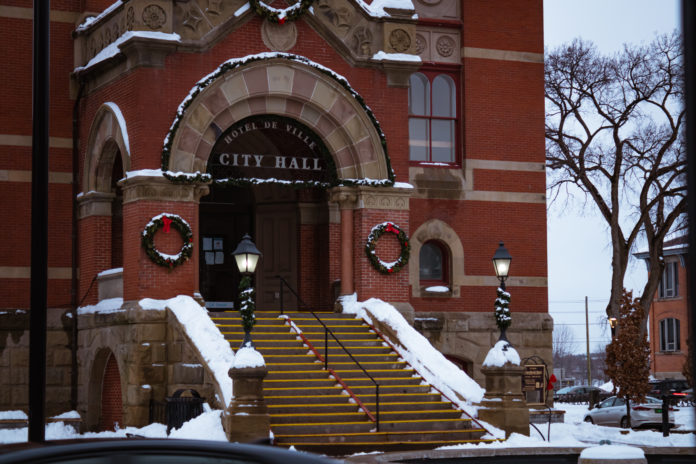Habitat for Humanity, an organization fighting house insecurity and promoting home ownership, is constructing a duplex on Albert Street in Fredericton. But city by–laws could be a better answer, said St. Thomas University professor Kristi Allain.
Construction of a semi-detached duplex on the corner of Albert and Regent streets began in September after a land donation from the city. The donated land, along with a contribution from the province’s new Housing For All Strategy are making the project possible, said Perry Kendall, the chief executive officer of Habitat for Humanity New Brunswick.
“It’s a brand new $70,000 per unit [investment]. So that is a good, solid contribution for each unit that we build,” said Kendall.
This project is one of four going on in the province right now. Saint John, Moncton and Miramichi also have projects moving to the construction phase, according to a statement from the provincial government. These will add to the 84 other families in the province that already have a Habitat for Humanity home.
These homes are sold to low- or middle-income families. Families do not need a down payment and will have no-interest, income-based mortgage payments.
Allain said relying on non-profit organizations such as Habitat for Humanity is not a sustainable method when it comes to facilitating and building affordable housing in Fredericton.
“The best and fastest thing we can do to help the affordable housing crisis in the city of Fredericton would be to actively go after Airbnbs. That would change the vacancy rate in the city by approximately one per cent ,” said Allain.
The city has by-laws that make Airbnbs illegal. If this by-law was enforced, small Airbnb units that are ideal for affordable housing, could be rented to people who live and work in the city. Airbnb units are short-term rentals that are not occupied by the owner.
“It’s just outrageous that the city is saying repeatedly that it’s really committed to doing something about this affordable housing crisis. It has laws on its books that could bring 200 units back online, potentially affordable units,” she said.
Allain, who sits on the city’s Affordable Housing Committee, said every new affordable unit built is a good thing but leaving that kind of development up to others and out of the city’s control doesn’t make much sense.
“In the City of Fredericton, we celebrate … every affordable unit that’s built but we’ve left it largely up to the not-for-profit and private developers to do that work,” she said.
It might make more sense for the city to have a housing corporation that directly facilitates and develops affordable housing, said Allain.
Kendall said he believes Habitat for Humanity’s work is still helping the city and province. He said in most cases by moving people out of other subsidized housing into a Habitat home it creates room for others.
With a baseline of six new units a year, Habitat for Humanity is expecting around 20 new units in the next year, including a few unannounced larger projects.
“We are absolutely increasing our impact and increasing the overall number of homes that we build to really put a larger dent in the affordable housing crisis,” said Kendall.

